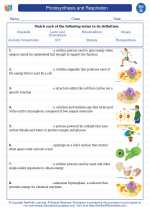Ribosomes
Ribosomes are cellular organelles responsible for protein synthesis. They are found in the cytoplasm of all cells and on the endoplasmic reticulum in eukaryotic cells. Ribosomes are made up of two subunits, a large subunit and a small subunit, each composed of ribosomal RNA (rRNA) and proteins.
Function of Ribosomes
Ribosomes play a crucial role in the process of translation, where the genetic information stored in the form of mRNA (messenger RNA) is decoded to produce proteins. They facilitate the binding of tRNA (transfer RNA) molecules carrying specific amino acids to the mRNA, allowing for the synthesis of a polypeptide chain that eventually folds into a functional protein.
Types of Ribosomes
There are two main types of ribosomes: free ribosomes, which are found in the cytoplasm and synthesize proteins that will function within the cytoplasm, and bound ribosomes, which are attached to the endoplasmic reticulum and synthesize proteins that are either inserted into the cell membrane or transported out of the cell.
Study Guide
- What is the function of ribosomes in a cell?
- Describe the structure of a ribosome.
- Differentiate between free ribosomes and bound ribosomes.
- Explain the process of protein synthesis facilitated by ribosomes.
- Discuss the significance of ribosomes in cellular function.
For a more in-depth understanding of ribosomes, it is essential to explore the molecular mechanisms of translation and the interactions between ribosomes, mRNA, tRNA, and amino acids.
[Ribosomes] Related Worksheets and Study Guides:
.◂Science Worksheets and Study Guides Seventh Grade. Photosynthesis and Respiration
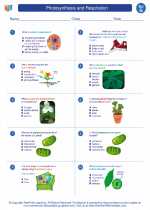
 Worksheet/Answer key
Worksheet/Answer key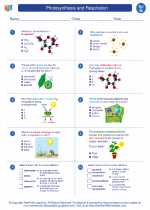
 Worksheet/Answer key
Worksheet/Answer key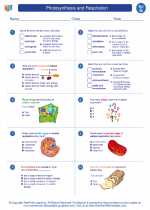
 Vocabulary/Answer key
Vocabulary/Answer key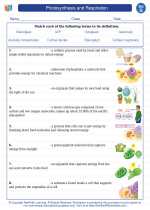
 Vocabulary/Answer key
Vocabulary/Answer key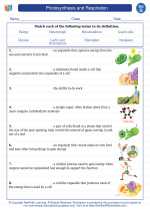
 Vocabulary/Answer key
Vocabulary/Answer key